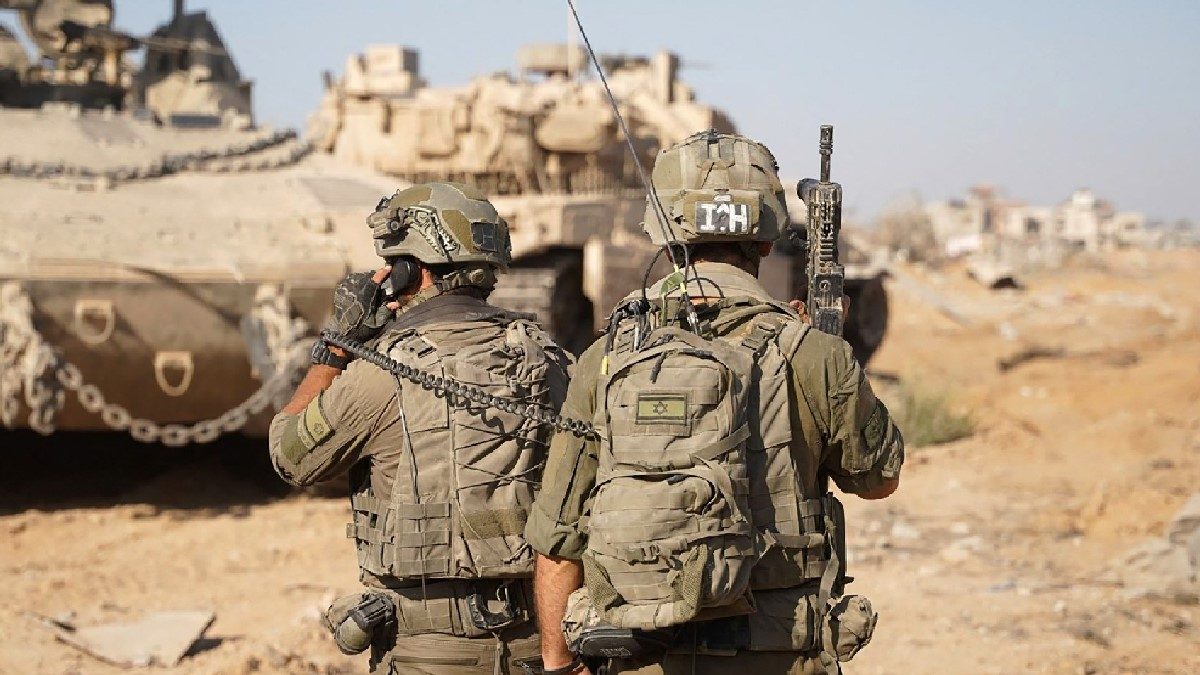Britain’s decision to suspend some arms exports to Israel marks a significant shift in the UK’s policy towards the Israeli-Palestinian conflict. This move comes after a thorough review of arms sales prompted by concerns over Israel’s actions during its ongoing war with Hamas in the Gaza Strip.
A Partial Suspension, Not a Full Ban
The UK’s decision is not a complete embargo on arms exports to Israel but rather a suspension of specific licences for items deemed to be potentially used in the conflict. This targeted approach aims to address the concerns about potential violations of international humanitarian law without disrupting Israel’s broader security needs.
The Scope of the Suspension
The suspension affects 30 out of 350 arms export licenses, targeting items such as fighter jets, helicopters, and drones. This list excludes parts for F-35 fighter jets, indicating a selective approach towards the arms control measures.
Concerns About Potential Violations
The UK government’s statement highlights a “clear risk” that the suspended arms exports could be used in violation of international humanitarian law. This language suggests a serious consideration of the potential consequences of supplying these weapons and reflects a heightened level of scrutiny on Israel’s military operations in Gaza.
The International Humanitarian Law Context
The UK’s decision references the importance of international humanitarian law, emphasizing the need for all parties in the conflict to uphold their obligations. This reference serves as a reminder that the UK is not solely focusing on Israel’s actions but also advocating for adherence to international law across all sides involved in the conflict.
A Shift in Stance?
While the current Labour government has maintained a similar approach to the conflict as its predecessor, the decision to suspend arms exports suggests a potential shift in stance. The suspension signifies a willingness to take concrete steps based on concerns about international humanitarian law violations, potentially signaling a more critical approach towards Israel’s military actions.
A Long-Term Implication
The UK government’s suspension of arms exports reflects a growing pressure within the international community to scrutinize Israel’s military operations. This decision sets a precedent for future assessments of arms exports, potentially impacting future relationships between the UK and Israel.
Balancing Security and Humanitarian Concerns
The UK’s decision highlights the delicate balancing act involved in maintaining security partnerships while simultaneously upholding international humanitarian law. This situation poses a significant challenge, demanding a nuanced approach that prioritizes both security and human rights considerations.
A Call for International Scrutiny
The suspension serves as a catalyst for increased scrutiny of Israel’s military actions and encourages international cooperation to address humanitarian concerns in the conflict. The UK’s actions prompt other international actors to assess their own arms export policies and to hold Israel accountable for its conduct.
Take Away Points
- The UK’s decision to suspend some arms exports to Israel reflects concerns about potential breaches of international humanitarian law in the Gaza conflict.
- The targeted suspension highlights a selective approach towards arms control, emphasizing specific items potentially used in the conflict.
- This move suggests a potential shift in the UK’s stance towards Israel, emphasizing the importance of international law and potentially setting a precedent for future arms export decisions.
- The UK’s decision underscores the complexity of balancing security interests with humanitarian concerns in international relations.
- The suspension of arms exports calls for increased international scrutiny of Israel’s actions and underscores the need for a comprehensive solution to the Israeli-Palestinian conflict that prioritizes both security and human rights.









